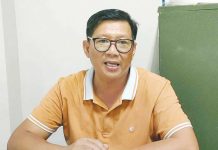
MANILA – A bill pushes for the inclusion of an education and awareness program on illegal drugs in public elementary and high schools.
The program may be incorporated in the K-12 curriculum or instituted as a co-curricular activity, Senate Bill 311 stated.
“We support the administration’s drive to suppress widespread use of illegal drugs through our education system,” said the author, Juan Edgardo Angara.
“Kung ang mga batang mag-aaral ay may sapat na kaalaman tungkol sa napakasamang epekto ng droga, malaki ang tsansa na maililigtas natin sila sa posibleng pagkalulong dito hanggang sa kanilang pagtanda,” said Angara.
The Philippine Drug Enforcement Agency planned to conduct mandatory drug testing among grade school pupils but the Department of Education (DepEd) opposed this.
Citing Republic Act 9165, or the Comprehensive Dangerous Drugs Act of 2002, the DepEd said random drug testing is allowed only for high school and college students.
But the Senate bill is pushing for the use of education as a means to curb drug use among the youth.
Moreover the measure also establishes a national hotline to help those struggling with addiction and provide immediate response to emergency.
“Aside from jailing the pusher, the antidrug campaign should also have a ‘save the user’ component. We should help addicts turn over a new leaf. They need help,” Angara said.
“Without intervention, there’s a strong chance they’ll backslide to their old ways. If that happens, then we’re back to square one,” he added.
Moreover the senator suggested the allocation of drug prevention funds to the Technical Education and Skills Development Authority for the training of vulnerable youth.
“For young drug users who have dropped out of school and are in rehabilitation centers, we should offer them Alternative Learning System programs,” he said.
“We must give drug addicts – especially the youth – an opportunity to reform their lives,” added Angara.
“Kung bibigyan natin sila ng pagkakataong makapag-aral muli at makapagtrabaho, mas mapapadali ang proseso ng kanilang rehabilitasyon tungo sa matuwid at maginhawang buhay.”/PN




